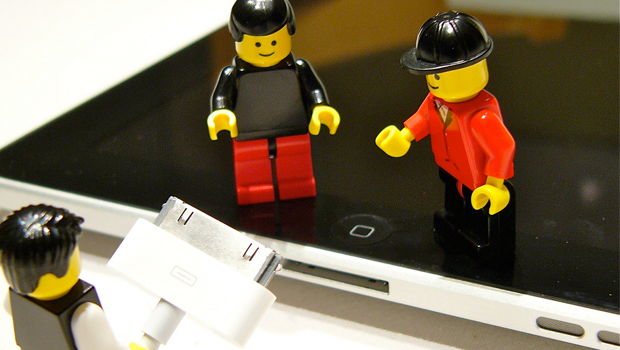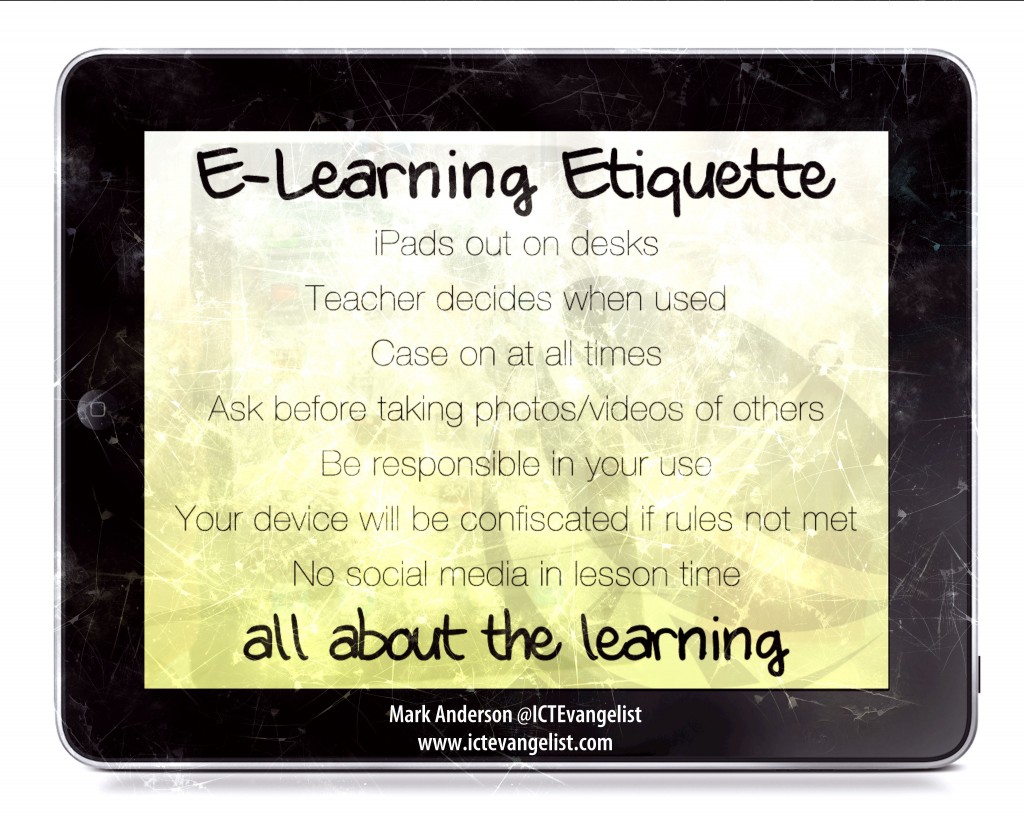
Being a parent is no easy task. Not only do you have to deal with the constant requests for help in all the different ways that our children ask for it, there’s also the pressure of keeping them safe; on the way to and from school; when they’re taking part in sports activities; when they’re travelling in our cars; with the things they view on television; watching what they eat… The same is true with the things that our children want. The latest toys, games, trips, technology…
As most people reading this will be teachers you will/should know that we have a legal responsibility for the children in our care. It’s called ‘loco parentis’ which means ‘in place of parent’. This relates directly to the level of care that a teacher should have for the children in their classes. Of course, teachers can’t replace parents, but as professionals in ‘loco parentis’ we do a number of things to keep our young people safe. One area is in relation to the use of technology and how to keep children safe when using it.
At the school I work in we do a lot to safeguard our students. We have whole staff training on e-safety, we teach students about e-safety in our classes and assemblies and we have managed Internet access which blocks access to inappropriate websites and more. We also have a digital citizenship agreement that asks all members of our community to adhere to rules of the digital road such as respecting others and ourselves, protecting ourselves and each other, respecting and protecting intellectual property; we even have an e-learning etiquette for the use of technology too. If you’re a parent though… how do you and how can you safeguard your children against the concerns of the online world? With smart phones having unrestricted access to the internet and young people being easily able to circumvent internal policy restrictions – how do you stop cyber-bullying, inappropriate access and foster an attitude of correct use and keep young people safe?
It’s an exciting but potentially worrying landscape out there. Just this past week or so we’ve heard in the news about the anonymous messaging app ‘YikYak’ being blocked in many schools in the US and soon in the UK (http://www.bbc.co.uk/newsbeat/29070335) that has seen children use it to bully other children. Other Apps used by cyber bullies such as ‘SnapChat’ enables users to take and annotate photos and share them. Then there’s the worry of who your children are talking to. Anonymous apps such as ‘Meow chat’ which matches users with anonymous strangers to talk with can give us plenty of cause for concern.
I believe we have two choices really – not allow young people to use technology at all or allow them to. Given that we have little choice but to allow it – we have to work out a way to make things as safe as possible for our children.
Education is key and not just for our children. Parents too. Websites such as Vodafone’s Digital Parenting site give information on lots of different digital parenting topics covering wide and varied topics such as:
· Cyberbullying
· Digital grandparenting
· Downloading and copyright law
· Excessive use of technology
· Health and wellbeing
· Identity theft and internet fraud
· Illegal content
· Inappropriate and harmful content
· Internet and mobile security
· Managing reputation
· Misleading content
· Mobile phone costs
· Mobile phones and health
· Mobile theft and accident prevention
· Online gambling
· Online grooming
· Online shopping
· Online and mobile advertising
· Privacy
· Reporting online concerns
· Sexual identity and relationships
· Spam and scams
· Sexting
· The mobile app revolution
You can get lots of support from the brilliant ‘ThinkUKnow’ website with age-relevant sections and an area for parents too (https://www.thinkuknow.co.uk/parents/). The CEOP (Child Exploitation and Online Protection Centre) website has lots of resources and support too (http://ceop.police.uk/) as does this Digital Literacy site too: http://www.digital-literacy.org.uk/.
The knowledge that your child’s mobile device most likely has unrestricted Internet on it is something that many parents are unaware of. Devices that run the Apple iOS system and the alternatives in Android and Windows phones do have parental controls on them. You can age restrict and prevent purchases of apps. There are lots of features that parents can use to help safeguard against inappropriate access and use. For example, many smart phones have the ability to use global positioning services. This is fantastic when trying to find a local shop or to use the mapping technology. It’s not so fantastic however when they are posting messages on Facebook with their location attached to it. This can pinpoint your address. Highlight areas that your child frequents. I’ll always remember the story of a child who put a message on Facebook saying they were just leaving for their family holiday with the location attached to it. This isn’t to say that geo-tagging posts isn’t fun, helpful or interesting. It can be. Just like we need to be aware of our digital footprint (the footprint our activities online leave behind), so we need to be aware of the information we give out about ourselves. These are some of the messages that parents get to hear about in the digital parenting sessions that
Advice from leading experts such as Professor Tanya Byron and Dr Linda Papadopoulos reinforce the idea that communication with your children is key. Being open and frank with your child about how they use technology and where they use it is vital. Talking with your child is the simplest and best way to keep up with the technology and what they are doing online. After all, it is they that are using it. Understanding the way in which children are using their technology will be important for us as the adults too as it will be completely different to what we will have experienced in our youth. In that way, a reasonable discussion moving forward about what constitutes safe activity and safe behaviour can be discussed and agreed with your child. In my experience, imposing arbitrary rules that have no context with a child can result in rebellion and them doing things behind your back, potentially opening them up to the experiences you were looking to avoid in the first place.
Top 5 tips:
· Talk with your child about their use of technology
· Come up with an agreed set of rules for the use of technology
· Use the features of their devices to help safeguard your child
· Use technology in an open and honest communication line as a family
· Ask your child to show you the latest shortcuts, tips and sites so that not only are you showing an interest in them, you can learn too whilst ensuring their safety – you can become a digi-parent!
I’d love to hear what you’re doing and what you’ve been up to in the comments.















8 Comments